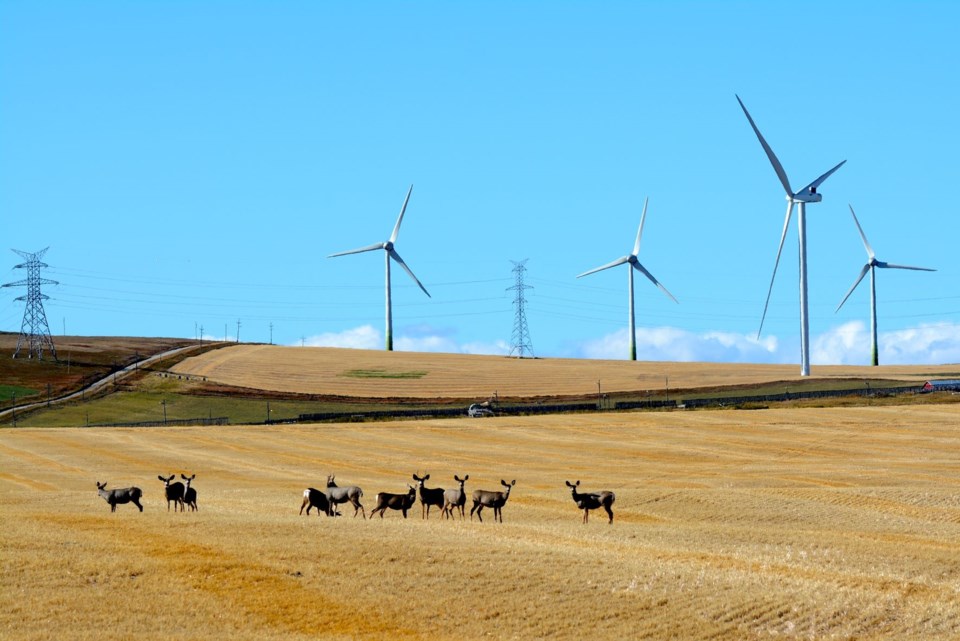Scott Hayes | [email protected]
Local Journalism Initiative Reporter
The provincial election is just over two months away now, but as far as the Pembina Institute is concerned, thereÔÇÖs no time like the present to be thinking about the future.
The non-profit, non-partisan clean energy thinktank recently released a report detailing its key recommendations for action on energy and climate policy. 
Simon Dyer, the instituteÔÇÖs deputy executive director and acting communications director, explained that the hope is that the report called ÔÇťÔÇŁ would give all of AlbertaÔÇÖs political parties time to read them but also that they might even include those recommendations in their election platforms.
ÔÇťWe certainly provide that information and make ourselves available for discussing this. WeÔÇÖve had some positive responses from a number of parties. It's both for the parties, and also to help inform the public and highlight some of the key issues that it's important for Alberta to be addressing,ÔÇŁ he said.
The Pembina Institute strives to provide these reports in advance of all federal elections as well as provincial elections here in Alberta as well as in British Columbia and Ontario.
As a province, Alberta already exists in a unique position in terms of being the source of much of the countryÔÇÖs energy development as well as offering popular natural wonders. Balancing energy and environmental issues must therefore already be part of any political partyÔÇÖs election strategies, and beyond.
ÔÇťAlbertaÔÇÖs RoadmapÔÇŁ attempts to show the way to achieving just that balance. The full title of the report includes the phrase ÔÇťEmbracing the opportunities for every Albertan.ÔÇŁ Inside its pages, it dives into the ways it says that the province can move towards a new energy future and make the most of it.
If the report is truly presented as a roadmap then its recommendations keep emissions reductions and low carbon energy production as a guidepost on the horizon.
It breaks down areas where we face the most challenges. For instance, the province has yet to commit to achieving net-zero emissions by 2050 and our preference toward approving natural gas generation despite increased investments in wind and solar energy projects, not to mention that Alberta oil remains amongst the most emissions intensive in the world.
The report also notes that more than half of Albertans have indicated that they want their next vehicles to be electric. Unfortunately, Alberta lacks supportive policies toward that end, resulting in a slower adoption of electric vehicles here than in much of the rest of the country.
Predominantly, however, it focuses on areas where Alberta has opportunities to move forward with progressive policies and intelligent accounting for the many ways that the world is changing. It suggests that the provincial government should urgently legislate provincial climate targets as a first step in working with industry in achieving their commitments. 
ÔÇťYou can certainly approach this from an impact perspective. Climate change is real, and we have to act. Our report is also framed very much in the positive,ÔÇŁ Dyer said. ÔÇťThere is an energy transformation happening around the world, and Alberta has to embrace these opportunities or risk being left behind.ÔÇŁ
The report explains that Alberta is strategically placed to capitalize on clean energy thanks to how our economy developed since the discovery of oil. It also says that the province is also home to some of the worldÔÇÖs leading experts on carbon capture technology, methane reduction techniques, wind and solar power and other clean energy solutions. The province has much to offer to the energy transition, and much to gain, it reads.
Now that the world is looking toward net zero targets, AlbertaÔÇÖs next leaders need to recognize the economic opportunities that come with it, the report notes.
ÔÇťThat's the overarching point: that the next Government of Alberta, whoever they are, need to really increase the prominence of this and catch up with the conversation that's happening elsewhere in Canada, among municipalities, of course as well, and globally,ÔÇŁ Dyer said.




